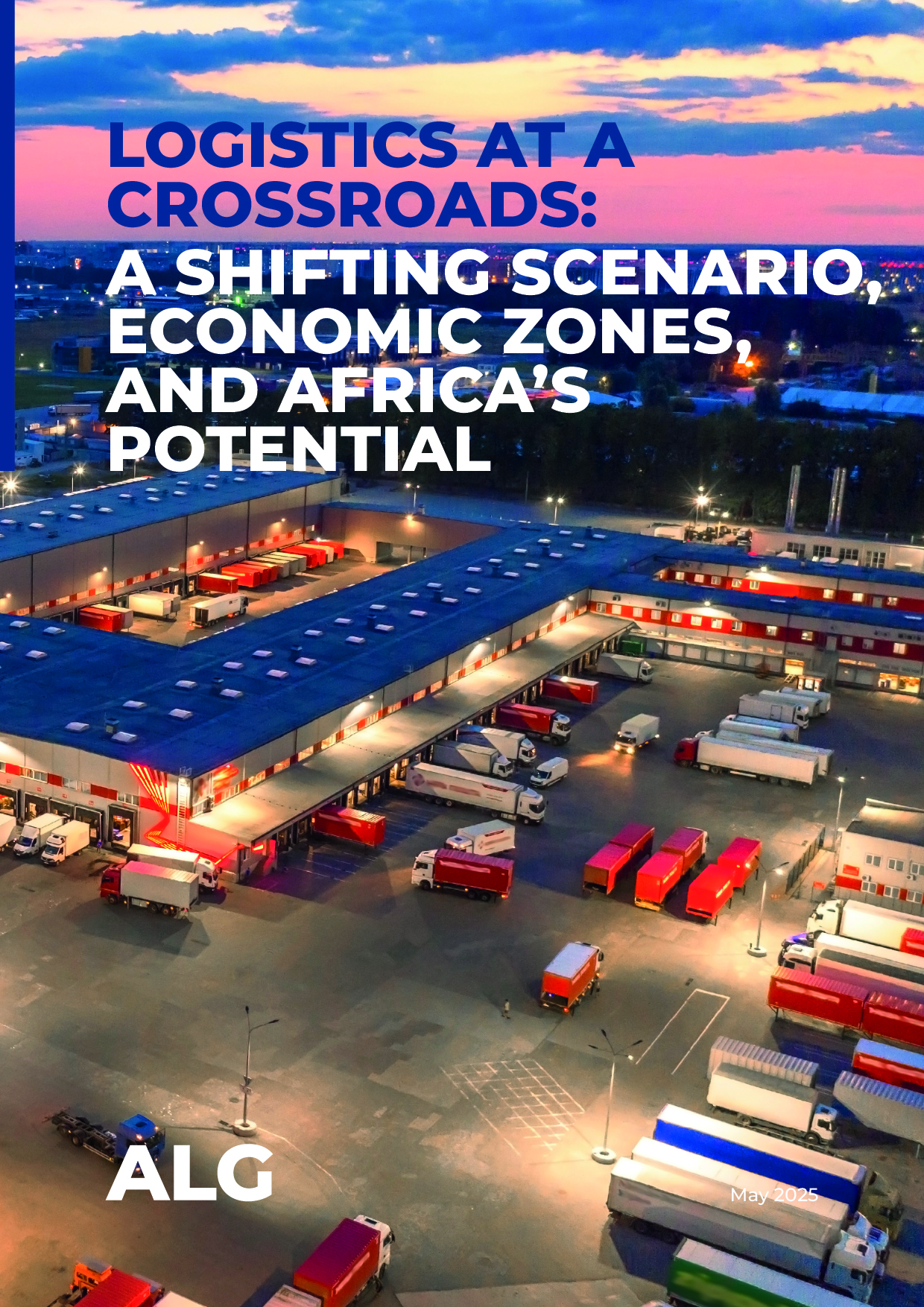In-depth insights

Logistics at a crossroads: a shifting scenario, Economic Zones, and Africa's potential
The global logistics sector is entering a new phase—one marked by volatility, transformation, and opportunity. After years of steady growth, 2023 signaled a turning point in the macroeconomic setting: global merchandise trade declined by 1% in real terms while export growth is expected to slow further to around 3% annually through 2030. This shift reflects a broader trend—complexity is now a constant.
The global logistics sector is entering a new phase—one marked by volatility, transformation, and opportunity. After years of steady growth, 2023 signaled a turning point in the macroeconomic setting: global merchandise trade declined by 1% in real terms while export growth is expected to slow further to around 3% annually through 2030. This shift reflects a broader trend—complexity is now a constant.
Yet within this evolving economic panorama, a new landscape of opportunity is taking shape. Consumption is outpacing GDP growth, driving short-term demand for logistics services and offering a renewed sense of optimism for the industry.
At the same time, logistics players must navigate an increasingly demanding environment. From ongoing supply chain disruptions and uneven adoption of new technologies to rising stakeholder expectations and changing regulatory frameworks, the sector faces a series of interrelated challenges that require rapid adaptation. In this context, resilience, agility, and innovation are becoming essential capabilities to remain competitive in a complex global trade ecosystem.
The paper analyzes the main forces shaping today’s challenging logistics landscape. The sector is being tested on multiple fronts, beginning with supply chain disruptions. Geopolitical tensions and unpredictable shocks continue to strain supply continuity, exposing vulnerabilities across global networks. Alongside this, technological transformation is reshaping the industry—automation, artificial intelligence, and digital platforms are redefining operational models, although the pace of adoption remains uneven across markets and companies.
The paper also highlights the increasing pressure from stakeholder demands. Sustainability, transparency, and speed are no longer value-added features—they’ve become baseline expectations across the board. Lastly, regulatory and compliance changes stand out as a cross-cutting challenge: companies must navigate constantly evolving policy frameworks that differ widely across regions, directly impacting their agility and competitiveness.
As the logistics sector seeks greater resilience and efficiency, new regions are emerging as strategic alternatives within global supply chains. One of the most promising is Africa, and in the paper, we dedicate a specific section to analyzing its growing relevance. With a favorable demographic outlook, geographic positioning, and relatively lower exposure to international disruptions, several African countries are positioning themselves as competitive and attractive logistics hubs. Nonetheless, the region faces several challenges that shall be overcome to fully unlock its potential in the logistics landscape.
Similarly, the report examines the rising role of Economic Zones as strategic assets that cope with existing macroeconomic hurdles and, in parallel, enhance logistic performance—purpose-built areas that centralize logistics and industrial activities to generate efficiencies through shared infrastructure and services. These zones, particularly in developing economies, are reshaping the flow of goods and enabling new trade corridors. Africa’s progress in developing such zones, alongside major infrastructure and regional coordination initiatives, could be a game-changer for the sector in the medium to long term.
Click the download button above, complete the form, and access the full report.
See more insights